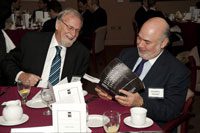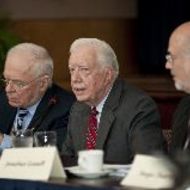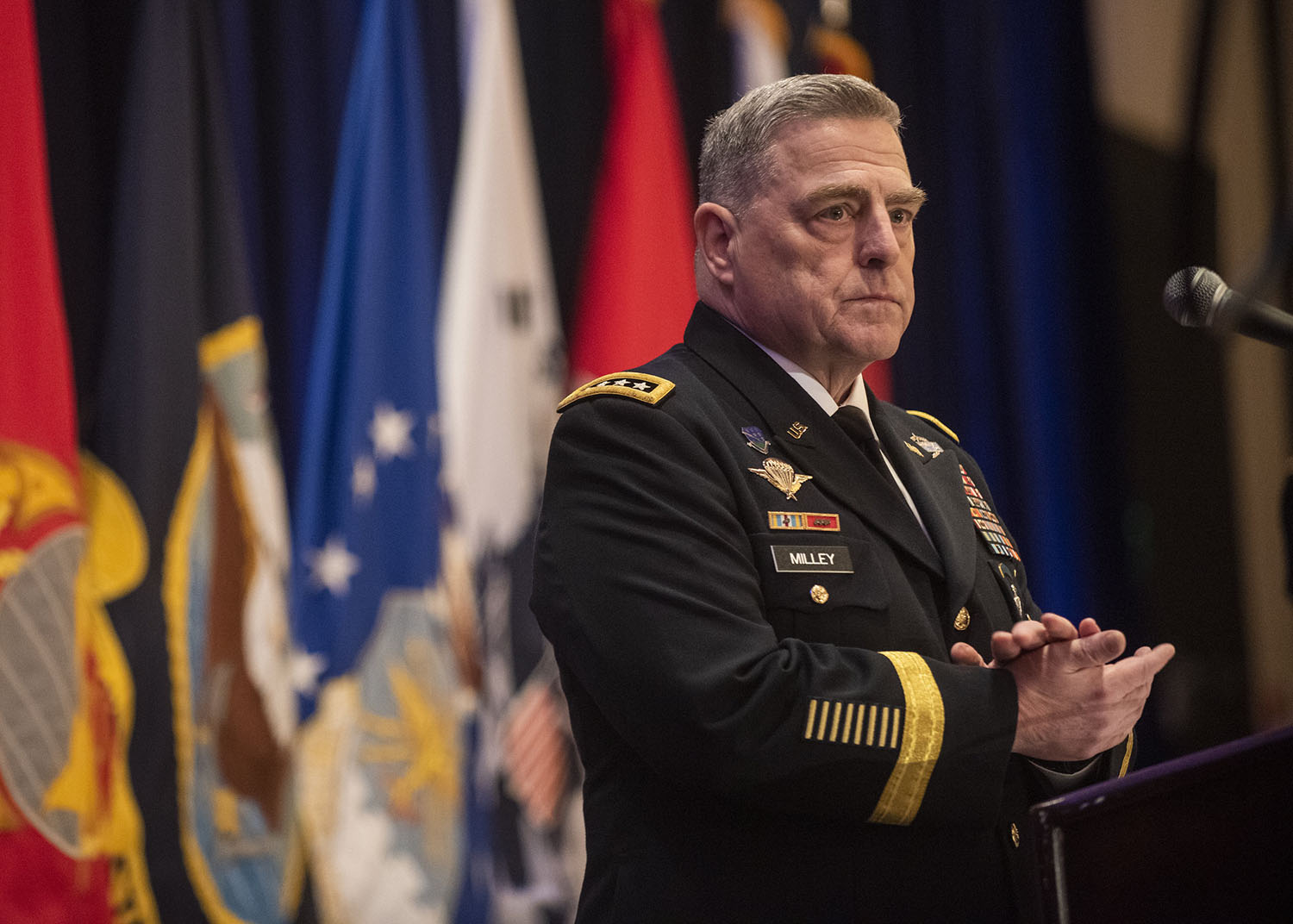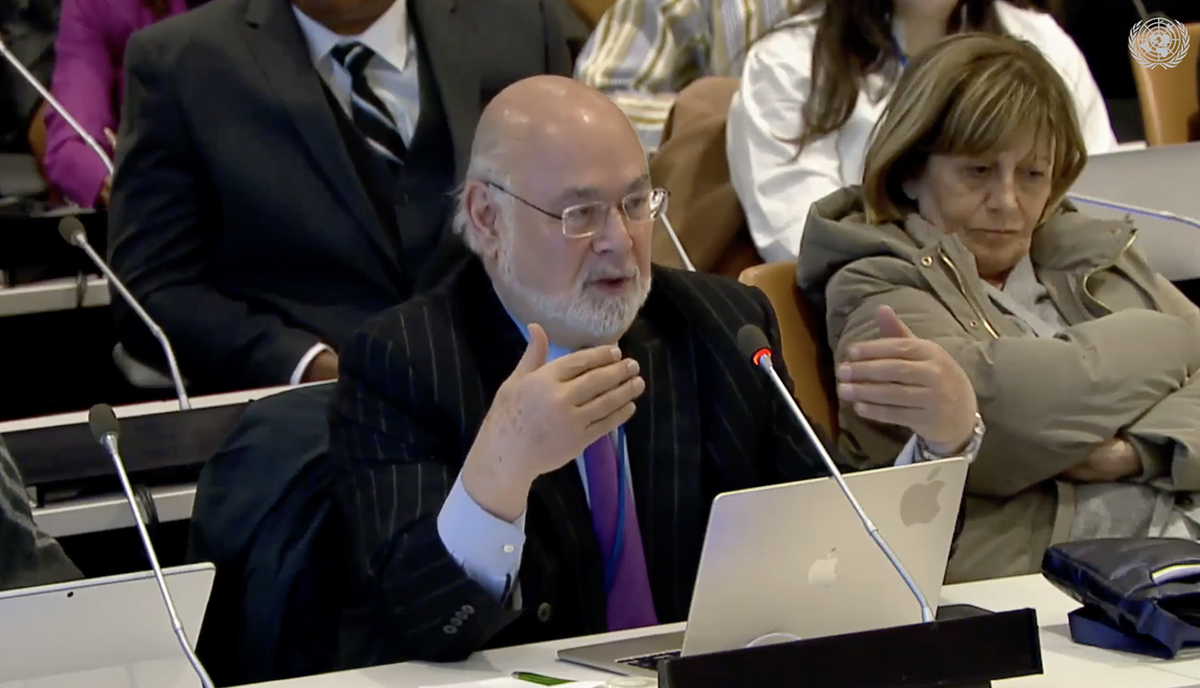The Middle Powers Initiative’s Atlanta Consultation III: Fulfilling the NPT was marked by openness in the deliberations and an eagerness to explore all options for fulfilling the Non-Proliferation Treaty – both at the May Review Conference and beyond.
For the third time in the run-up to an NPT Review Conference, President Jimmy Carter and the Carter Center in Atlanta, Georgia, hosted this MPI consultation. It took place January 20-22, 2010. Twenty middle power governments, as well as two nuclear weapon states – the United States and United Kingdom – participated in the Consultation, as well as senior officials from the United Nations, the Comprehensive Test Ban Treaty Organization (CTBTO) and the Carter Center.
A goal of this consultative process is to create a forum in which diplomats and experts can engage in candid, critical and open dialogue on the policies and instruments required to preserve, strengthen and fulfill the nuclear non-proliferation and disarmament regime. The measure of success is whether ideas and policies were analyzed effectively so that when actual negotiations commence groundwork will already have been laid. Such efforts help identify where consensus can be found and where policies that can generate progress can be pursued.
 |
|
|
Plenary and breakout sessions focused on the immediate concerns related to the Review Conference and on the longer-term issues – such as, nuclear doctrine and a fissile materials cut-off – that need to be addressed in order to advance a nuclear weapon-free world. MPI representatives and other non-governmental speakers argued that there can be no more delay in proceeding towards the elimination of nuclear weapons and urged the governments present to take more explicit positions in favor of a global, non-discriminatory treaty banning nuclear weapons, such as a nuclear weapons convention (NWC).
In his opening remarks, Amb. Henrik Salander, the Chairman of MPI, said governments “must be seen to start preparing for a convention, since that is the only credible way of fulfilling the NPT in the very long run.” (Due to an illness that prevented him from flying, Amb. Salander was unable to attend the Consultation, but his remarks were read to the Consultation.) Sen. Douglas Roche, Chairman Emeritus of the MPI and substitute Chairman of the Consultation, noted, “Were the nuclear weapons states to make such a commitment, they would not only save the Non-Proliferation Treaty from further erosion but gain the moral authority to call on the rest of the world to curb the proliferation of these inhumane weapons.”
 |
|
|
Keynote addresses also emphasized the need for immediate action. President Jimmy Carter said, “I hope that this group will be aggressive and persistent and demanding on all of the players in shaping world attitudes and actions in future years and that does not exclude the five original nuclear powers that have signed the NPT and who in my mind, have not complied with it.” The Hon. Gareth Evans, the Co-Chair of the International Commission on Nuclear Non-proliferation and Disarmament, speaking at a dinner opening the Consultation, said, “The time is better now than it’s been in the last ten years when the international community has been sleepwalking. The potential is there to grab this issue by the scruff and take it forward. If we don’t – and we’ve lived long enough to lament – we’re going to regret not taking this opportunity.”
What emerged from the Consultation was a common belief that success at the Review Conference will require a balanced approach to all the commitments in the treaty and its supporting documents, including the 1995 Middle East resolution and elements of the 13 Practical Steps. There was also clarity as to the challenges the diplomats will face in May; the issues upon which success of the Review Conference hinges. The future of other agreements – the CTBT, US/Russian strategic weapons talks, a Fissile Materials Cut-off Treaty – are inextricably linked to the effectiveness of the NPT. Issues relating to doctrines – such as how to lessen and remove nuclear weapons from the security equation, no first use, and extended deterrence without nuclear weapons – were also substantively examined.
The President-Elect of the 2010 Review Conference, Amb. Libran Cabactulan, said, that on the basis of his consultations with state parties, success in 2010 can be defined by agreement on three “substantive challenges:” a disarmament action plan that is “doable and aggressive” going beyond “managing the status quo, but at the same time laying a firm foundation on what can be agreed or negotiated later on that could lead us to the total elimination of nuclear arms;” the “logical” implementation of the Middle East resolution; and “the robust strengthening of the NPT regime that would enable it to respond to questions like withdrawal, compliance, [and] full implementation of NPT.”
 |
|
|
Speaking to these issues, the UN High Representative for Disarmament Affair, Sergio Duarte, said, “Support for the treaty remains overwhelmingly strong among the States parties. There seems to be general agreement that a positive outcome should be based on a balanced approach to the three pillars of the NPT.” However, he said, there are also “some disquieting indications. At last year’s third session of the Preparatory Committee for this Review Conference, states parties were able to agree on the most important procedural issues, but they were not able to reach a consensus on substantive recommendations. Of concern here is not just the depth of disagreements on substantive issues, but the breadth of them, covering several areas that lie at the very heart of the treaty.” These areas included deterrence, compliance, and modernization of nuclear weapons, he added.
Another recurring theme was the pivotal role of the United States in the Review Conference. The willingness of the Obama administration to reengage in multilateral efforts and the sweep of the President’s April 2009 speech in Prague gave rise to numerous statements looking forward to a constructive US role in advancing the nuclear non-proliferation and disarmament agenda. Amb. Susan Burk, the US Special Representative of the President for Nuclear Non-proliferation, emphasized this renewed multilateral cooperative approach of the US. “It really will require the support, the efforts and the creativity and the good will and the political will of all of our partners,” she said, “We have a collective of parties to this treaty… The Review Conference will be an opportunity to demonstrate to what some have called the cynics and the skeptics, that multilateral diplomacy is a vehicle for solving the problems of the globe.”
In the closing of the Consultation, Mr. Jonathan Granoff, the President of the Global Security Institute, defined the criteria for success at the Review Conference. “Is there momentum, clear momentum going towards the elimination of nuclear weapons? Is there a consensus on moving forward toward the elimination nuclear weapons coming out of the NPT conference?” he asked. “Now if that takes the form of a variety of agreements or a final agreement I really don’t know… But the success will be the extent to which you empower civil society to activate the larger public and empower our own governments to change their behavior toward nuclear weapons.”
A final report of the conference will be published in the coming weeks.








